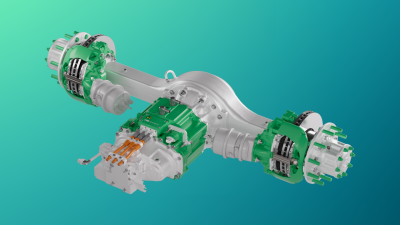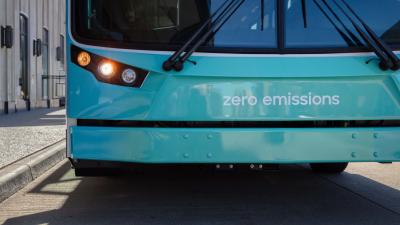Fuel Cells
Fuel cell coach buses are driving the future of long-distance travel
The transportation sector is undergoing a significant transformation. Among the various innovations, fuel cell-powered coaches stand out as a promising solution for long-distance travel, offering a cleaner, more efficient way to connect cities and countries. This technology is set to revolutionize intercity and cross-border transportation by providing numerous benefits to fleet operators and passengers.
Fuel cells vs. battery power for extended bus routes
In the search for sustainable transportation solutions, buses powered by a fuel cell powertrain or a battery powertrain offer valuable benefits, each excelling in different aspects. While battery-powered buses have made impressive strides in urban settings, fuel cell technology is particularly advantageous for long-distance travel.
Battery-electric buses, designed to achieve extended ranges, often rely on large battery packs that can limit passenger capacity and add weight. On the other hand, fuel cell solutions are lighter and more efficient, offering greater range without compromising space or performance.
Additionally, fuel cell buses benefit from faster refueling times compared to the longer recharging periods required for electric buses. This speed and efficiency are crucial for long-distance routes, where minimizing refueling time is essential to maintaining schedules and ensuring passenger satisfaction.
Perks of fuel cell-powered coaches
Fuel cell technology as an alternative to traditional combustion engines offers several significant advantages over conventional diesel engines, making it an attractive option for passengers and fleet operators.
Benefit 1: Quieter and smoother ride
One of the most notable benefits is the quieter operation of fuel cell engines. Passengers can enjoy a smoother, more serene ride without the constant noise and vibration associated with traditional diesel engines. This quieter operation enhances the overall travel experience, making long journeys more comfortable and less tiring.
Benefit 2: Less maintenance
For fleet operators, the efficiency and durability of fuel cell engines translate to lower operational costs and reduced maintenance needs. Fuel cell-powered buses offer a significant advantage in terms of maintenance over traditional diesel engines. Unlike diesel engines, which have numerous moving parts, more complex transmission systems, and require regular oil changes, fuel cells operate with fewer mechanical components and no combustion process.
This simplicity reduces the likelihood of mechanical failures and the need for frequent repairs. Additionally, the absence of engine oil, and fewer moving parts translates to lower maintenance costs and reduced downtime, allowing fuel cell buses to operate more efficiently and reliably over their lifespan.
Benefit 3: Low to zero-emissions capability
Fuel cells generate electricity through a chemical reaction between hydrogen and oxygen, producing only water as a byproduct. Why is this good? Because there is no exhaust system to maintain and no particulate matter emissions.
Reshaping coach travel with Accelera
AcceleraTM by Cummins is at the forefront of advancing fuel cell technology for the coach bus market. Our latest generation of modular fuel cell technology, available in 300kW and 150kW engines, represents the potential of this technology to transform long-distance travel.
Key features of Accelera fuel cell engines:
- Higher power node: The high-power capability of our fuel cell stack and system significantly increases power density and efficiency, making it ideal for demanding long-distance routes.
- Enhanced system efficiency: By integrating variable pressure and external humidifiers, our fuel cell engines improve system efficiency, durability, and performance across various outdoor conditions, ensuring reliable operation year-round.
- Modular architecture: The flexible, modular design of the fuel cell engines allows for easy configuration to suit multiple applications and layouts, providing versatility for different coach bus models and fleet requirements.
- Security of supply: Leveraging Cummins' extensive supplier network ensures access to the highest quality parts globally. Its affiliation with a global organization guarantees a secure supply of critical components and opportunities to utilize common parts across various product lines, enhancing technology improvements.
- Global service + support: Along with its supplier network, Cummins has well-established service and support resources that ensures Accelera customer applications remain operational when needed, offering comprehensive maintenance and support to maximize uptime and performance.
As the transportation industry moves toward a more sustainable future, fuel cell-powered coaches represent a pivotal step forward. With companies like Accelera leading the charge, the potential for cleaner, more efficient long-distance travel is becoming a reality, benefiting passengers and operators alike. The future of long-distance coach travel is not just on the horizon – it’s here, driven by the innovative power of fuel cell technology.
To learn more, visit Accelera at the IAA Transportation Expo on Sept. 17-24 in Hannover, Germany.

